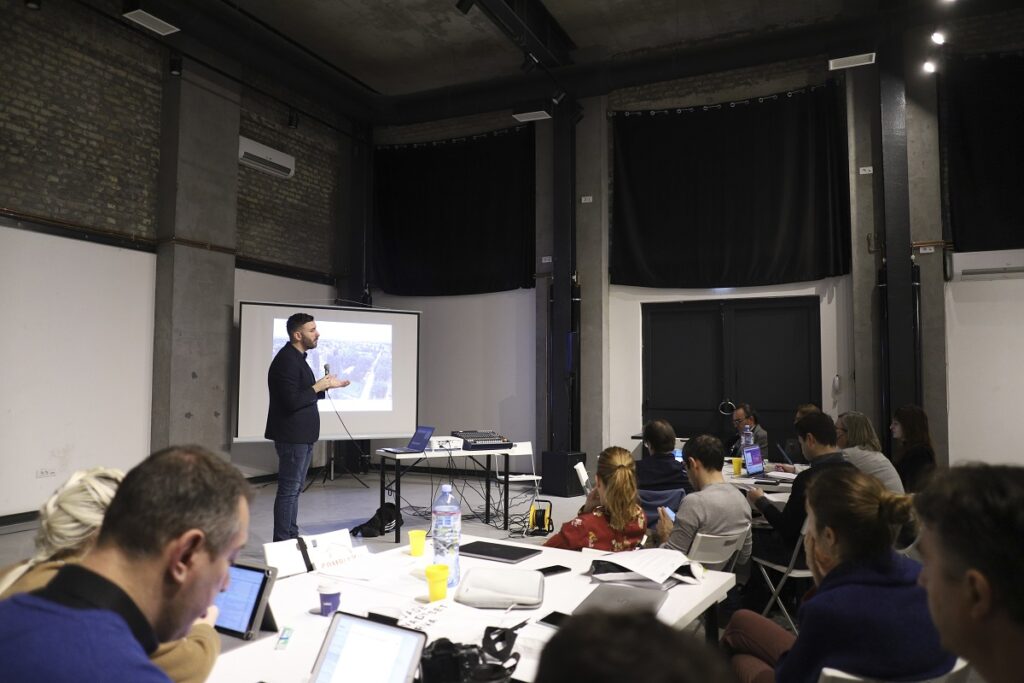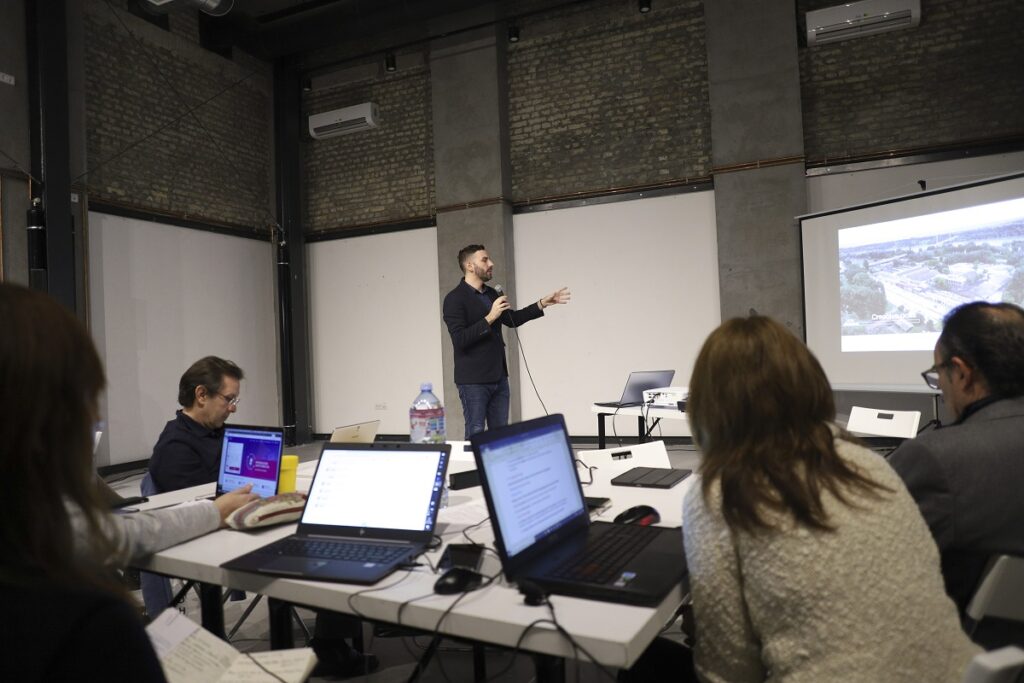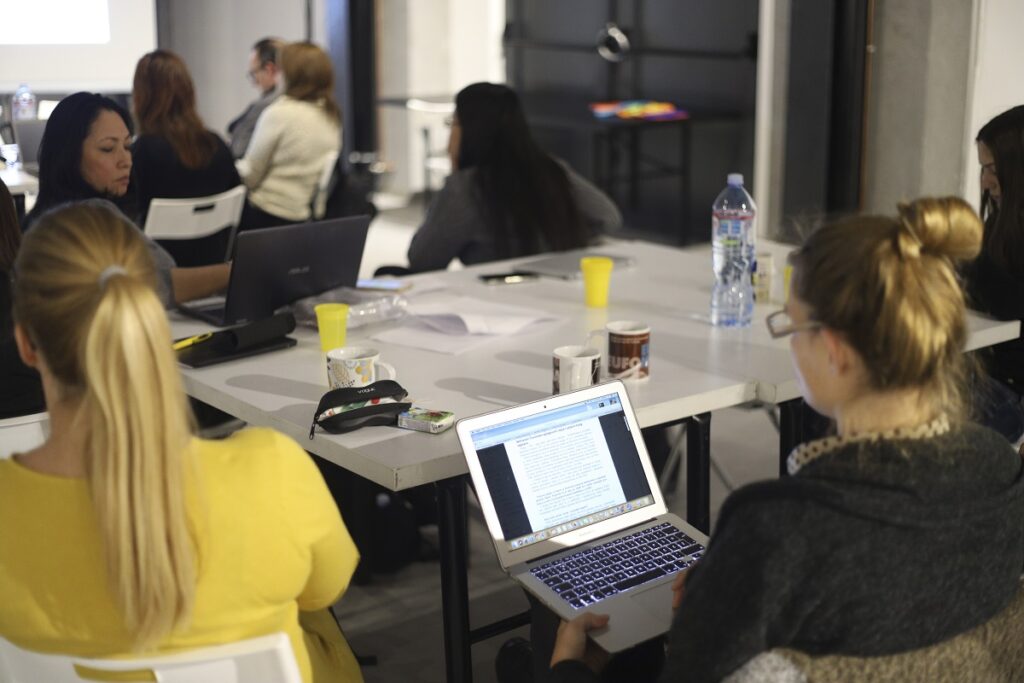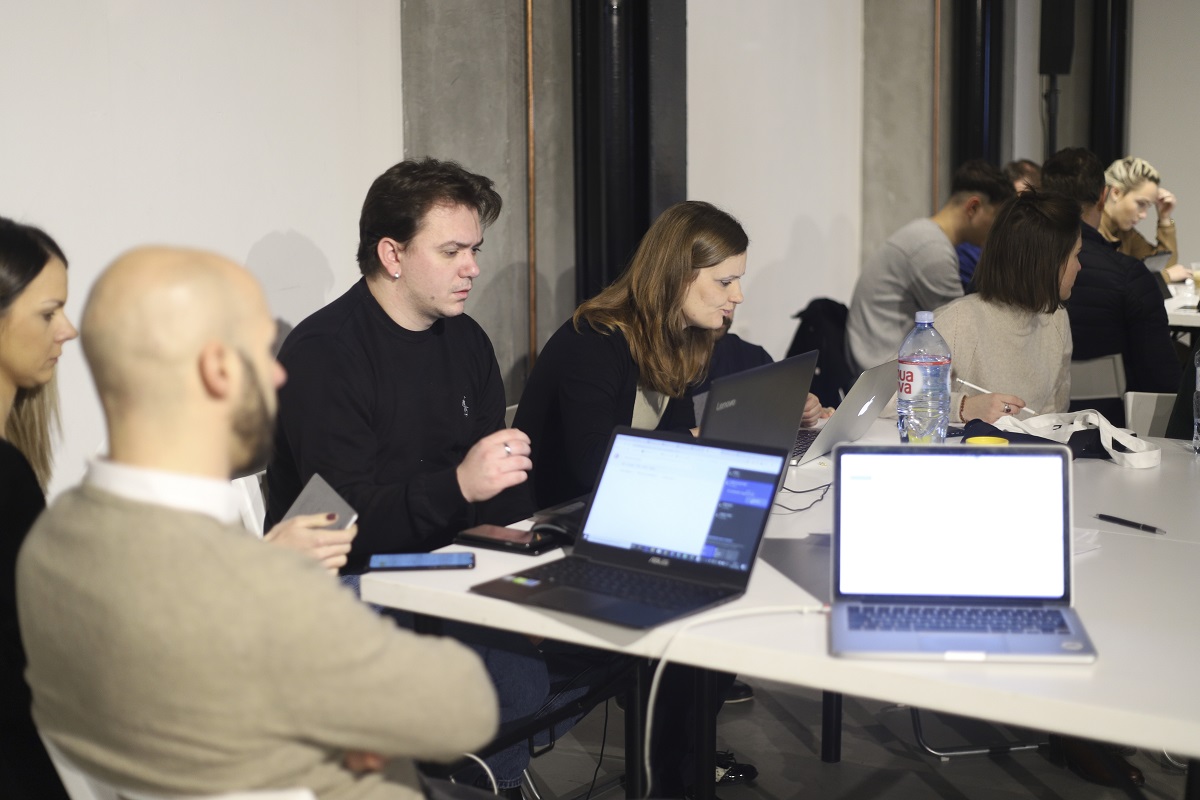The activities of the international ‘O-City’ project continue, and this time Novi Sad was the place for presenting and discussing examples of good practice for digitisation of cultural heritage.

Earlier this week, on 27 and 28 January, a partner meeting on the O-City project was held in the Svilara Cultural Station. It was the first meeting in Novi Sad and the third since the beginning of the project. The previous two meetings were held in February in Spain (Valencia and Gandia) and in July in Italy (Matera).
The ‘Novi Sad 2021′ team presented the work done so far, as well as the commenced processes within preparations for the year of the European Capital of Culture title, which should become a legacy even after 2021.

On this occasion, the Museum of Vojvodina presented its interactive comics with augmented reality.
The ‘Novi Sad 2021 – European Capital of Culture’ aims to contribute to local and regional cultural development through the promotion of cultural heritage in contemporary ways, activate the local cultural scene and increase the demand for trained experts in creative technologies through the ‘O-City’ project.
It is a global project funded by the European Union through the Erasmus + programme for 2019-2021, which includes 13 organisations, companies, universities and cultural institutions from Spain, Greece, Serbia, Slovenia, Colombia and Italy, including the ‘Novi Sad 2021 – European Capital of Culture’.

The ‘O-City’ project has three phases. The first is to discover and promote the cultural (tangible and intangible) heritage of cities, but also to create new legacies, in terms of developing the identity of a community and its citizens. The second stage is encouraging creative economy, training professionals in the field of creative technologies so that they integrate that knowledge into existing or new companies. It also implies that cultural institutions and organisations turn to modern approaches and modern technologies. The third phase is the modernisation of the university, i.e. the transfer and acquisition of knowledge, which should be based on launching projects, stimulating teamwork, training, improving skills and resources for innovative learning.
The idea is to achieve these goals through knowledge, sharing examples of good practice and collaboration between triple creative partnerships: universities, companies and cities that will create a valuable brain trust for creating innovations that impact the environment.



